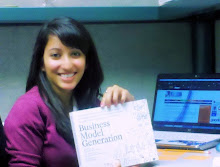



Buy Recycled
There’s no mistake as to why the symbol for recycling appears to be a continuous circle of arrows. Each arrow represents a process, which includes collecting waste for recycling, reusing and purchasing recycled products. Buying recycled products means consumers are completing the circle, which is an important step in recycling because it comes with many benefits that help the planet and market economy.
Thousands of products sold to consumers annually are made with recycled content. These products help conserve natural resources and reduce energy consumption. Glass, aluminum cans and all the steel made in the
Energy demand is involved in the attainment of turning raw materials into new products. This demand is low when energy is consumed during the making of recycled material. For example, recycled aluminum uses 95 percent less energy to be turned into new products. Bauxite ore uses more energy to make new aluminum. Even when making new paper, using recycled paper can save up to 60 percent of energy costs!
In most situations, making products from recycled materials uses less carbon monoxide and methane. These gases are major contributors to greenhouse gases. Since most products sold are produced locally, transportation is decreased which results in less air pollution. Water pollution is lessened because there is fewer materials necessary to make recycled content products. For example, recycled content paint can be manufactured with less processing locally. There is no long distance travel needed to ship the paint. Not only does this benefit air and water pollution positively, the paint is kept out of waste landfills. Even recycling paper reaps benefits for a landfill. One ton of recycled paper can save up to 3 cubic yards of landfill space!
When a shopper purchases a recycled content product, they are creating and strengthening a market that uses recycling. Two-thirds of the Gross National Product is made up by consumer spending. Buyers are sending a message to manufacturers to create more products, thus ending the continuous circle of recycling. Purchases help foster a demand for materials collected by local government recycling programs. More jobs are created in the process. Seven jobs are created when seven bags of yard trimmings are composted. Also, nine jobs are created for every 15,000 tons of waste that is recycled into new material.
Purchasing recycled products helps ensure the continuation of recycling programs and conveys to the public how committed people are to help save their planet. If one person buys recycled content products, their family member or friend might see how satisfied they are with that item and make a similar purchase. Based on a field analysis, purchasing a recycled content notebook from Mead has similar endurance and quality as regular notebooks from Five Star. The paper appears drier to the touch or grayer to the eye but the end result is the same. For example, recycled content computer paper from Office Max has the same quality printing result as Hi-Brite Multipurpose paper from
Based on an online survey of forty people, ninety-five percent believe recycled content product has better quality and overall durability. Based on his five year experience with a recycled content backpack, Richard Bradford has come to the conclusion that his bag has more durability than non-recycled content bags. He claims he purchased his bag from an online business company called Re-Source. According to
Some argue recycled content products are costly and hard to find. They also believe the quality and performance is low when in fact these products are manufactured to meet the same standards, if not better, as their virgin opponents. Aluminum cans and glass can be recycled repeatedly without losing quality. Many recycled content products can be found in national chain stores such as K-Mart, Home Depot and Wal-Mart. Hundreds of products are manufactured or packaged in recycled material. Mail order catalogs, the Internet and independent retailers also sell recycled content products. These products include toys, office supplies, backpacks and gifts. If consumer demand is higher, the prices would come down due to higher availability of products. Chances are if products are more costly, then they have better quality.
Recycling is as simple as trashing, but more conscientious. An important role is actually purchasing recycled content material because this jumpstarts the demand for new recycled content products, thus stabilizing the market. As a result, buying recycled can be used to make a difference in the environment by conserving natural resources and energy. These underlying benefits also reduce waste and help create new jobs. Buying recycled content products makes consumers smart shoppers. There’s no reason to skip buying recycled content products when so many benefits come as a result.
Works Cited
"Buy Recycled Initiative."
"It All Comes Back to You." Buying Recycled. State Recycling Coordinator.
"ReSource Series - Recycled Materials." Re-Source Series. Osprey.
"Shop for Supplies." Office Supplies. Office Max.
Sulek, Steve. "STATE RECYCLING." Buy Recycled. State Recycling Coordinator.

No comments:
Post a Comment